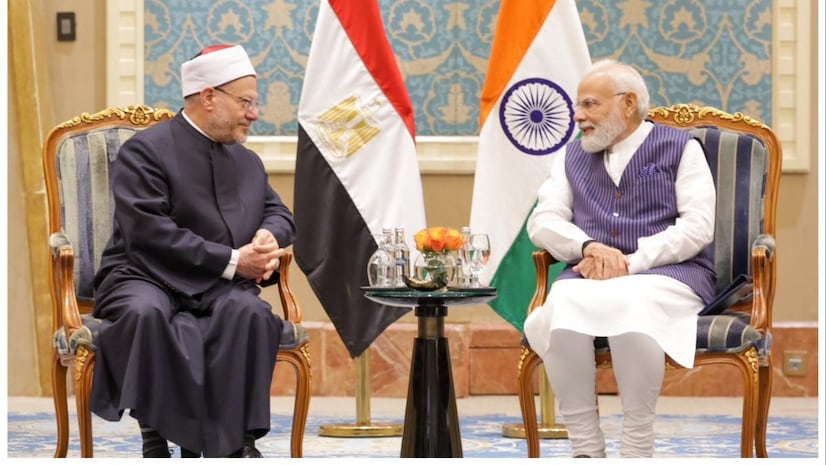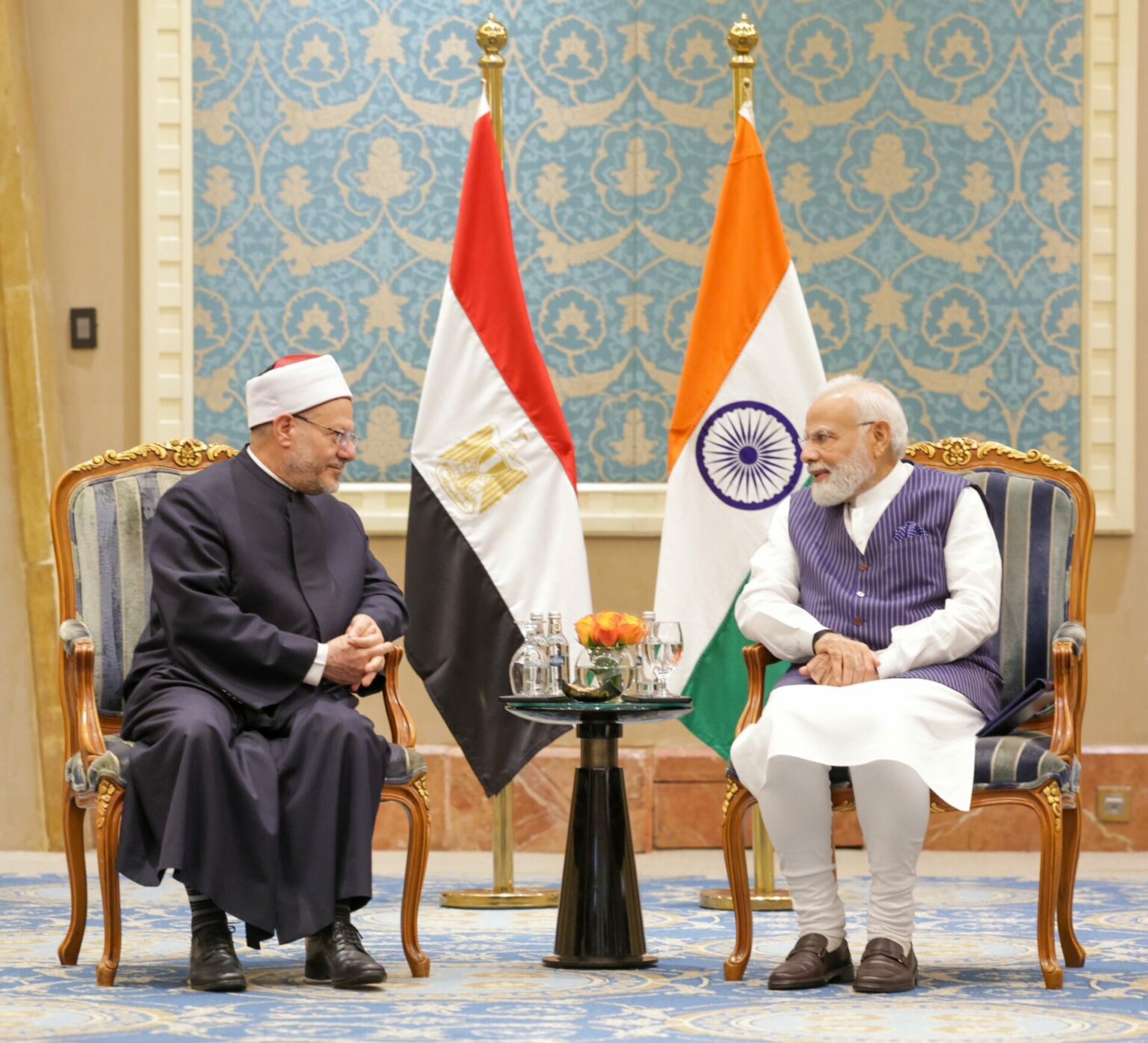Prime Minister Narendra Modi’s two-day visit to Egypt has garnered significant attention, with analysts hailing it as a potential game changer for bilateral relations between India and Egypt. The visit holds the promise of paving the way for increased Indian investment in Egypt and presenting an opportunity for Egypt to gain entry into the BRICS economic bloc. With strategic implications and economic prospects, this visit is poised to strengthen ties and chart a path for future collaboration between the two nations.

source- twitter@narendramodi
Strengthening Bilateral Relations:
PM Modi’s visit marks a milestone, being the first by any Indian prime minister to Egypt since 1997. It builds upon the elevated strategic partnership established during Egyptian President Abdel Fattah el-Sisi’s visit to India in January, where he was the chief guest at India’s 74th Republic Day celebrations. The current visit is seen as a step towards further strengthening the already robust bilateral relationship between the two countries.
Expanding Trade and Economic Engagement:
The Ministry of External Affairs (MEA) has expressed optimism regarding the visit’s potential to expand trade and economic engagement between India and Egypt. The reciprocal nature of the visit, following President Sisi’s trip to India, indicates the mutual commitment to enhancing ties. The focus will be on identifying new areas of collaboration and facilitating trade partnerships that can benefit both nations.
India’s Investment in Egypt:
Egypt’s desire to attract increased investment from India aligns with India’s interest in gaining deeper access to the Middle East and North Africa (MENA) region through Cairo. The visit aims to explore avenues for Indian businesses to invest in Egypt, leveraging the country’s geostrategic significance as a gateway to major markets in Europe and Africa. Enhancing economic cooperation will not only boost bilateral trade but also contribute to the overall growth and development of both economies.
Egypt’s Entry into BRICS:
One of the key expectations surrounding PM Modi’s visit is the possibility of India extending support to Egypt’s desire to join the BRICS economic bloc. With China’s growing influence in Egypt, India sees an opportunity to balance China’s dominance within the organization and prevent Pakistan, a close ally of China, from joining. Egypt’s potential inclusion in BRICS would have significant geopolitical implications and present opportunities for collaboration among the member nations.
Geostrategic Significance of Egypt:
Egypt’s crucial geostrategic position cannot be overlooked, with 12% of global trade passing through the Suez Canal. This makes Egypt a vital player in international trade routes, offering access to markets in Europe and Africa. India’s alignment with Egypt can provide it with deeper access to the Arab world and Africa, as well as strengthen its ties with Israel. As India assumes the G20 presidency, it has also extended an invitation to Egypt to participate as a “guest country,” further emphasizing the importance of their collaboration.
Prime Minister Modi’s visit to Egypt holds immense potential for transforming bilateral ties and boosting investment between India and Egypt. The visit signifies a commitment to strengthen strategic relations, explore new avenues for economic cooperation, and leverage Egypt’s geostrategic significance. It also presents an opportunity for Egypt to gain entry into the BRICS economic bloc, which could have far-reaching implications. As both countries seek to expand their global outreach and enhance their positions on the world stage, this visit sets the stage for deeper collaboration and a mutually beneficial partnership in various domains.













